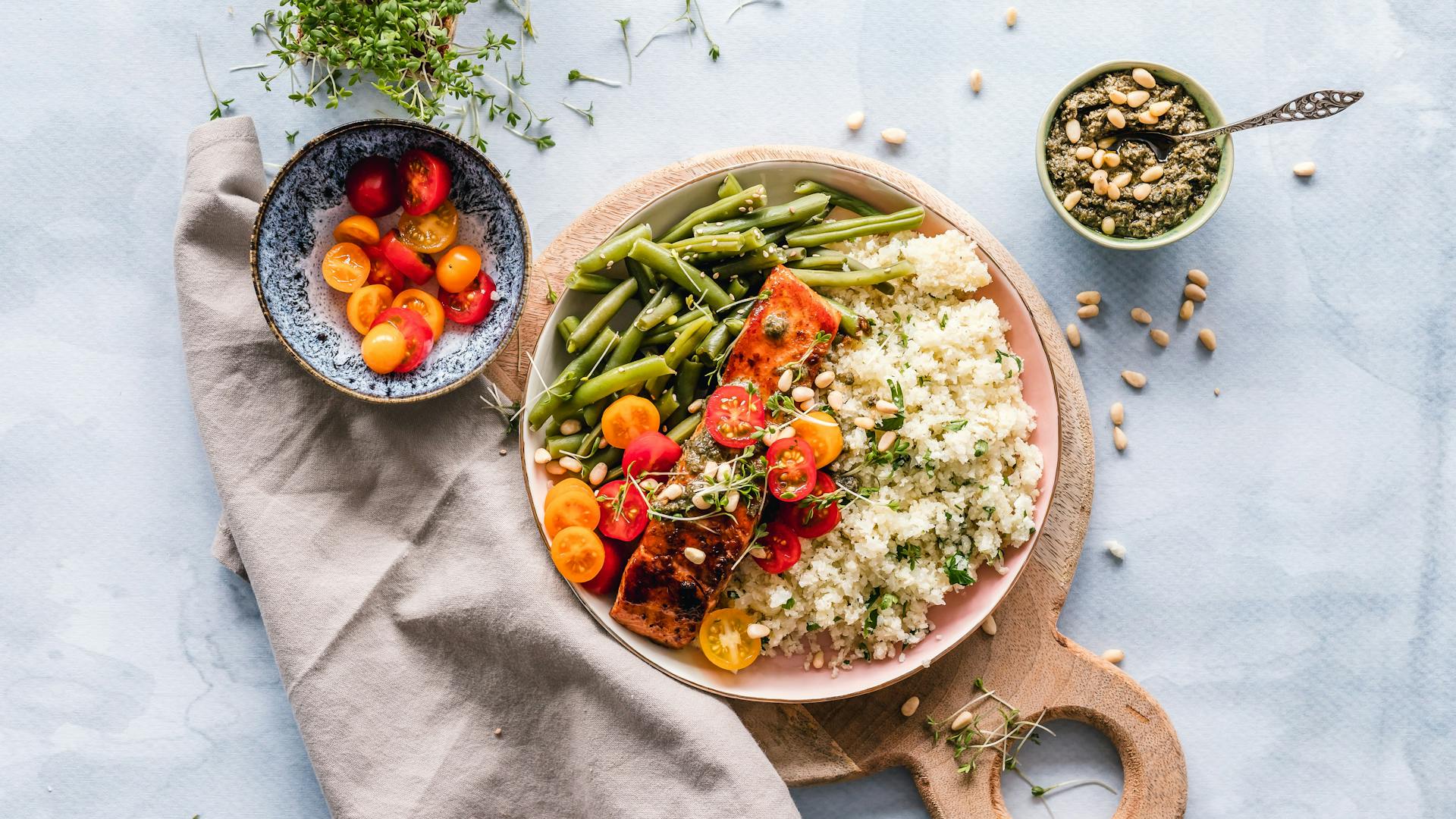We all know that healthy eating is fundamental to our overall wellbeing, but information-overload (not least online), contradictory reports and unhelpful fad diets can overwhelm to the point of inaction. Not only is it difficult to distil the facts; knowing how to eat healthily and adapting our everyday lifestyles - from what children should eat to the diets of elderly relatives - can seem daunting.
Added to our concerns, are the links between an unhealthy diet and serious medical conditions, including diabetes, heart disease, obesity, high-blood pressure, dementia and cardiovascular and metabolic diseases. According to the International Diabetes Federation, type 2 diabetes accounts for around 90% of all diabetes cases, and is most commonly diagnosed in older adults, but is increasingly seen in children, adolescents and younger adults due to rising levels of obesity, physical inactivity and poor diet.

How to eat healthily
Encouragingly, research quoted by the Harvard T.H. Chan School of Public Health in the US, suggests that type 2 diabetes, together with chronic conditions like heart disease, stroke and cancer, can be prevented with a healthy diet and regular physical exercise. Reducing calorie intake; replacing saturated fats (cream, cheese, butter) with unsaturated fats (nuts, olive and vegetable oils); eating fibre (fruit and vegetables, whole grains); and avoiding too much alcohol and added sugar are fundamental steps we can all take for healthy eating.
“The most common misconception about healthy eating is that it’s difficult,” says Robin Mandler, wellbeing advisor at Aspria, who has a degree in micronutrition. “The key to long term results in healthy eating is simplicity. Another misconception is that it’s boring. That’s just wrong. There are so many different tastes that we can rediscover.”
As adults, we need to lead by example when encouraging healthy eating in children. “Creating healthy eating habits for all the family with a focus on the ‘why’ it is good for us, is key,” Robin advises. “The earlier they learn about it, the easier they will adopt those habits.”
With this in mind, Robin has broken down our daily meals - breakfast, lunch and dinner (with some snack interruptions) - into bite-size chunks of information on how to eat healthily, and why. As a rule of thumb, avoid processed, nutrient-poor food as much as possible, at all times. But what’s encouraging is that - as with most things - moderation matters, and variety of food triumphs. “You don’t have to avoid other things in particular, if you’re not overdoing it,” says Robin.
Breakfast: boost your dopamine levels
The saying goes that “breakfast is the most important meal of the day”. In fact, scientists are divided over the claim; there isn’t a one-size-fits-all approach. But regardless of breakfast’s hierarchy, it remains our first meal of the day and, as such, can determine how we feel until night time. So what should we eat?
Ideally, healthy fats and some protein, with a sprinkling of antioxidant-rich fruits. For example, if you’re feeling hungry, choose eggs, avocado or salmon. For lighter options, go for yoghurt with blueberries, and some nuts. “You want to boost your dopamine - also known as ‘happiness’ hormone - level in the morning with these foods,” explains Robin. “Proteins are made from amino acids, which include tyrosine - a precursor of dopamine. Dopamine plays a role in alertness, good mood and taking initiative.”
And what to avoid? Sugary cereals and fruit juice with added sugar, especially for children. Cereals that contain wholegrains - and porridge oats - offer a healthier breakfast option, but many, especially those targeting children with bright colours and the promise of a chocolate coating, are high in fat and added sugar. Check food labels before buying.
Lunch: highest-protein meal of the day
Similar to breakfast, make sure you have a protein-rich lunch - this should be your highest protein meal of the day to ensure you get enough for the entire day (dinner should be light in protein - as you’ll see below). Try to keep red meat down to once or twice a week, Robin advises. “Chicken or turkey is much better for cardiovascular health. And go for fatty fish - sources of omega-3 - like salmon, tuna, mackerel or sardine.” Add as many colourful veggies as you like and a small portion of starchy carbs, such as rice, pasta or quinoa.
Snacks: if you must...
We’re all guilty of craving a mid-afternoon sugared pick-me-up, but snacking doesn’t have to be a guilty pleasure. Swap processed treats for fresh fruit, a handful of nuts, even dark chocolate (70% cocoa). “I often like to dip some crunchy food into something paste or liquid-like,” says Robin. “Celery sticks or apple parts into nut butters. Fresh whole grain bread dipped into some cold-pressed olive oil works, too.”
As for children, plain popcorn and dried fruits are great options for keeping up energy levels - fun, tasty and healthy.
The difficult part might be breaking that cake habit. “The hardest changes are addictive eating behaviours,” Robin explains. “One simple example would be the refined sugar you find in nearly every processed food. Sugar acts like a drug and to withdraw from it can be a long process. It's also difficult to change habits when the rest of the family isn't following the same principles.”
Dinner: complex carbs are your friends
Many fad-based diets have given carbohydrates a bad name, especially when consumed in the evening. But complex carbs - found in brown rice and pasta, and starchy vegetables (tip: keep skins on potatoes) - are not your enemies. “You want to promote your serotonin production with those complex carbs, which contain the amino acid tryptophan - a precursor of serotonin,” Robin explains. “Serotonin has a positive effect on your sleep and aids against depression.”
Alongside your chosen carb, go for double the amount of veg (ideally steam-cooked or raw), with a small portion of protein - lean meat or fish, cheese, tofu, soy, lentils. “Try to eat early in the evening to respect a longer fasting period of at least 12 to 13 hours,” Robin advises. “And avoid too much fat in the evening as it’s more difficult to digest. If you eat red meat, it's good to have a glass of organic red wine. It contains an inhibitor (a compound called DMB) of TMAO-production - a toxic byproduct which can indicate a higher risk of cardiovascular diseases.”
As studies suggest, it’s not just healthy food that helps prevent serious medical conditions; physical exercise plays a vital role in our overall wellbeing. The IDF recommends a minimum of three to five days a week of physical activity, for at least 30-45 minutes each. So, why not try a new exercise class? Take a tennis lesson? Or find some balance with yoga. As for children, camps are a great way to stay fit and have fun, in addition to their favourite, everyday activities, like tennis, swimming and ball games.
And remember, just as changing your eating patterns needn’t be boring (you can still eat chocolate…), the same applies to exercise. Do everything in moderation, and do it for the love of it. The rest will follow.



